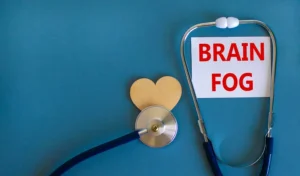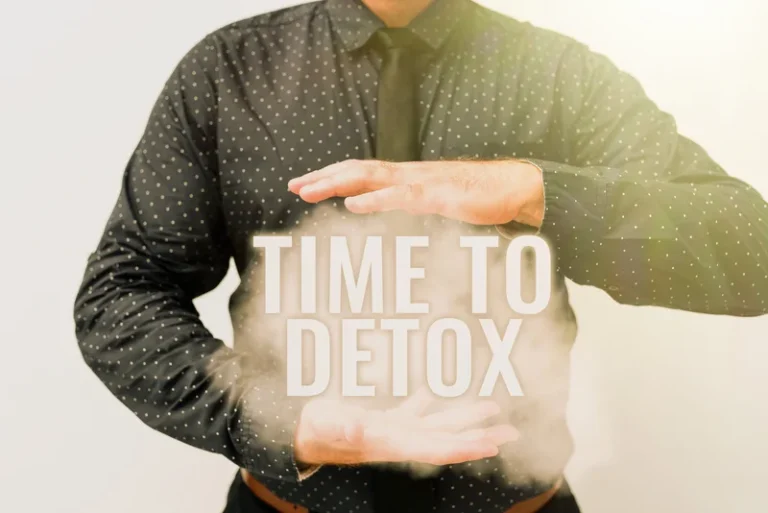
“Poor sleep habits can hit us in two ways, increasing our stress levels and disrupting the brain’s opportunity to rest and recover,” says Bridges. “This can come from having an inconsistent sleep schedule, not sleeping soundly, or waking up in the middle of the night—all of which can give you transitory brain fog.” Alcohol impairs GABA, a calming neurotransmitter that reduces anxiety and stress levels in the brain. Alcoholics have been shown to have lower levels of GABA receptors than those who are not alcoholics (R).
- Your head seems to be in the cloud after binge drinking with your siblings.
- Neuropsychologist Kamini Krishnan, PhD, explains why brain fog has become a popular term of the moment and why brain fog may happen as a symptom of other common conditions.
- The material on this site is for informational purposes only, and is not a substitute for medical advice, diagnosis or treatment provided by a qualified health care provider.
Need Treatment Financing?
They may not remember people’s names, even people who they know well. They may not be able to form short-term memories because they are confused or thinking about other things. Alcohol brain fog is just as common, and it can be devastating for the recovery process. Relapse prevention programs focus on empowering individuals with tools and techniques to deal with triggers, cravings, and high-risk situations.
More in Healthy Living

In fact, a deficiency in the essential nutrient thiamine resulting from chronic, heavy alcohol consumption is one of the biggest factors contributing to alcohol-induced brain damage. If you’re struggling with alcohol addiction, it’s important to consider starting an addiction treatment or healthy withdrawal program. So, if you’re struggling with alcohol brain fog or any type of cognitive impairment, make sure to spend some time in nature every day. In addition, acupuncture can also help improve your sleep quality, which can further help reduce the symptoms of alcohol fog or brain fog in general.
- Therefore, it’s important to make getting quality sleep a priority to avoid more brain drain.
- Several rehab detox centers are there to provide personalized treatment plans.
- This can make it difficult to concentrate, remember names, or focus, and you may feel mentally fatigued.
Pay attention to how alcohol impacts your sleep
It can make it difficult for you to focus, remember things, or even have a conversation. Caffeine can cause jitters, headaches, insomnia, upset stomach, and rapid heart rate, especially if you have a caffeine sensitivity. Because of this, the Food and Drug Administration recommends no more than 400 milligrams, or 4 to 5 cups, of coffee per day. While the Centers for Disease Control and Prevention (CDC) recommends that you exercise for 30 minutes per day, any kind of movement counts.

Medications and Cancer Treatments

Brain fog symptoms may vary from person to person, however, slowed cognitive functioning seems to be a recurring element. Brain fog is a vague term to describe uncertain states of consciousness. The symptoms of brain fog can include confusion, difficulty concentrating, and short-term memory loss. Brain fog does not have alcohol withdrawal brain fog an official test so your healthcare provider could help from there. If you want to cut back on your alcohol consumption and boost your brain health, consider trying Reframe. We’re a neuroscience-backed app that has helped millions of people reduce their alcohol consumption and improve their cognitive functioning.

This initial phase of sobriety can be invigorating and is often referred to as the “pink cloud”—a period that feels a little like you’ve found a unicorn. If you don’t have time to go outside, you can also sit near a window to get some natural light. In fact, research has shown that people who are exposed to more sunlight have a lower risk of developing depression. Yoga is a type of exercise that combines physical activity with mindfulness. Just make sure to start slowly if you’re not used to exercising and building up your stamina over time. However, too much caffeine can also lead to dehydration, so make sure to drink it in moderation.
Brain Fog And Mental Illness
- Through individual counseling sessions, individuals can explore the underlying causes of their addiction, develop coping mechanisms, and learn healthier ways to manage stress and triggers.
- Medical supervision is always recommended because detox can be such an unpleasant — and even life-threatening — experience.
- Priority mental health is equally important for overcoming brain fog.
This article will dive deeper into what brain fog is, how it’s related to alcohol, what the symptoms of it are, and much more. You should be aware of how alcohol affects you and your sleep schedules. “Keep a sleep log to measure duration and quality and add to that log drink quantity and https://ecosoberhouse.com/ times to see if you notice patterns related to sleep quality,” Mendelson advises. Alcohol consumption decreases melatonin production — regardless of whether the sun is down. One study found that drinking alcohol an hour before you go to sleep can suppress melatonin production by 20%.
As the alcohol is metabolized and nutritional states are restored, alcohol brain fog can clear with time. Once alcohol is eliminated and alcohol withdrawal symptoms subside, people recovering from an AUD will feel more like themselves again. This change can initiate them to become more motivated to maintain sobriety. Motivation plays a major role in addiction recovery, considering the rates of relapse. The duration of brain fog after drinking can vary depending on several factors.
